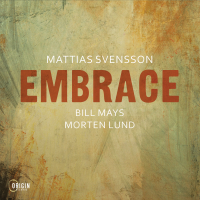When I was a kid, my dad had a Rolodex. Actually, my dad still has a Rolodex. My dad is one of the least organized people I know. In his apartment, he is good at stacking things (like newspapers and bills and books) on top of other things (like pingpong tables and folded easels) on top of other things (like trunks and cardboard boxes filled with newspapers and bills and books). I was adult before I learned that you're supposed to continue to replace the toothpaste cap on the tube after you use it.
However, Mr. Grossman is organized about one thing: correspondence. He has a log book in which he draws pictures, staples post cards, and keeps notes on every phone call he has. But his greatest feat of organization is his Rolodex. No residence or phone number in his life (or my life, or my siblings' lives, or his ex's lives) has ever gone undocumented. Sometimes he throws out useless cards, but mostly they live on stuck to the little wheel, reminding me of my uncle's ex-wife's parents' phone number or my camp address from 1989 or my great aunt Betty who died last year.
The cards are mostly white or more precisely, they're nicotine white, which is actually more of a kind of gold color. Some are pink, because apparently there was a period where the stationer tried to appeal to ... people who like pink. Each one has a degree of soul and meaning that no entry in my Gmail address book will ever possess.
The Wheel of Life
When I got my first job at a newspaper in 2001, I had a small Rolodex. I got it because everyone around me had one. What's more, people talked about their Rolodexes. “I think I have her in my Rolodex," they'd say. Or, “If he leaves, he's going to take his Rolodex with him." This, of course, meant that someone's “contacts" were veeeeery important. Sometimes, people would take a card out of their Rolodex if I needed it, and I'd go copy the information and bring it back to them. There were people who stapled cards onto Rolodex pages and people who hand wrote all the information. Cards could be added or tossed or shared with ease. It was a genius, efficient and highly personal way of staying in touch.
I didn't keep my Rolodex for very long. There were several reasons for this. For one, I'm actually pretty good at memorizing numbers. Like 19. And 34. And 5. 19 34 5. I just rewrote them without even looking! This is funny because my memory for everything else in life is so bad that I usually can't remember the beginning of a sentence by the time I get to the end which is why I have no idea what this sentence is about.
Another reason is that my dad taught me this nifty number memorization system when I was a kid. But the main reason is that I, like (almost) everyone else, eventually started keeping numbers and addresses on my computer and phone. Now I'm at the point where I hardly do that. I just search my Gmail or text people or Google around until I find the digits and street names I need.
But just because this is the more “modern" method of keeping numbers and such doesn't mean that it's a better system. Really, the Rolodex might be one of the more important memory systems ever created.
Arnold Neustadter, inventor
The Rolodex was the brainchild of Arnold Neustadter, a somewhat anal twentieth century inventor from Brooklyn.
For more information contact All About Jazz.
























